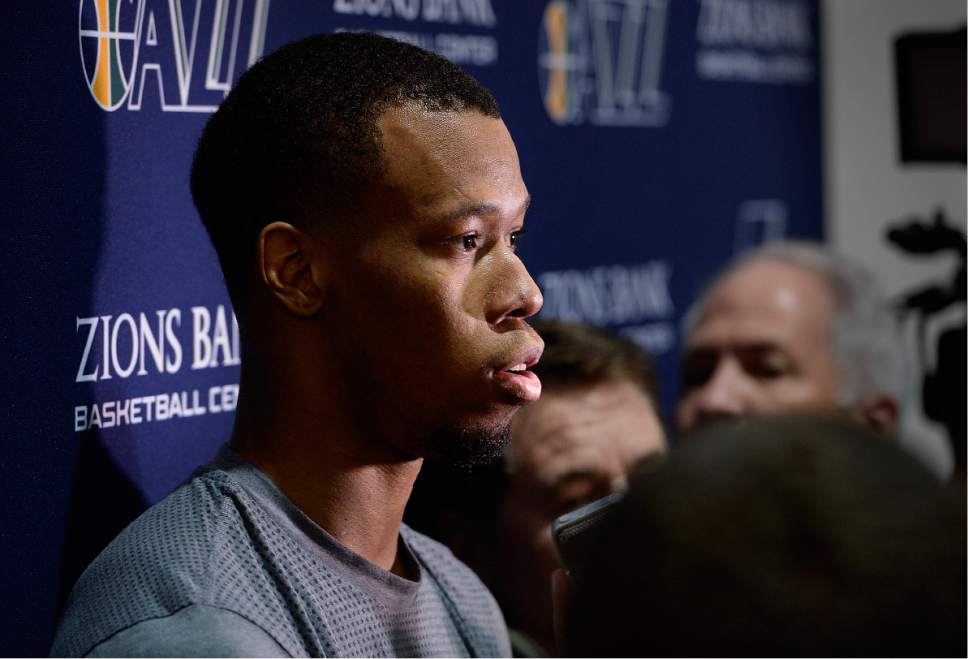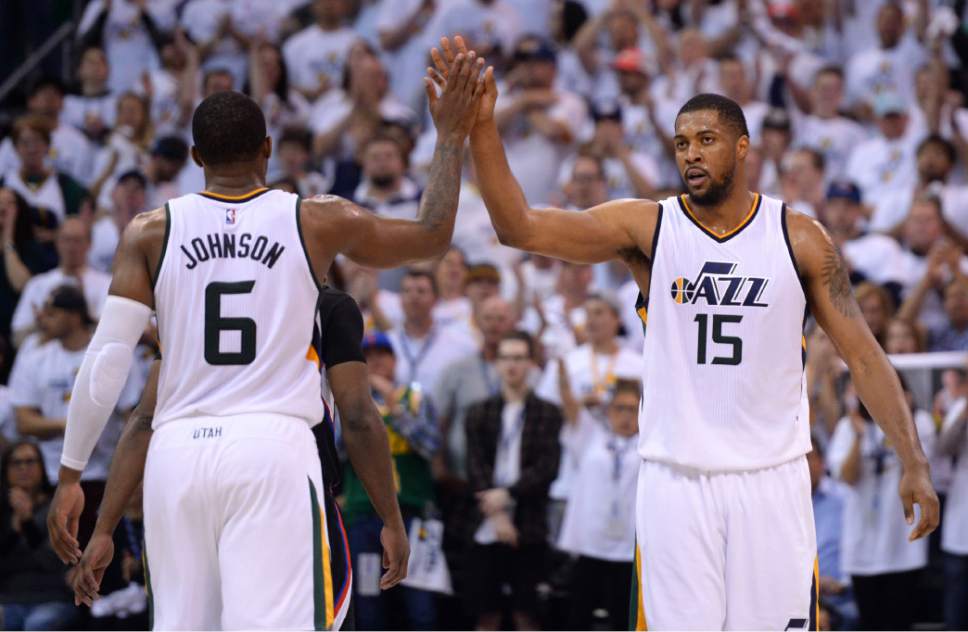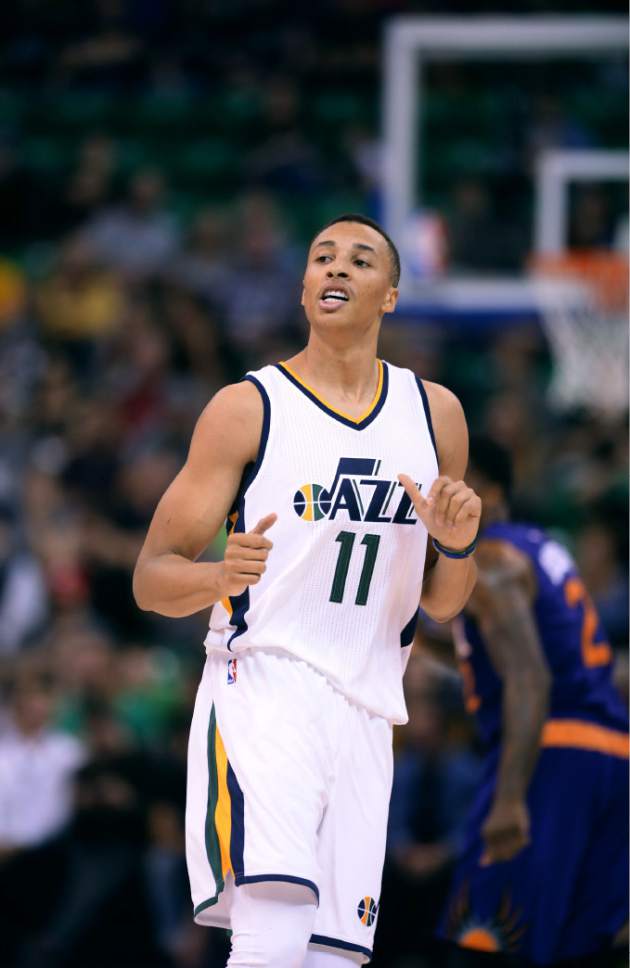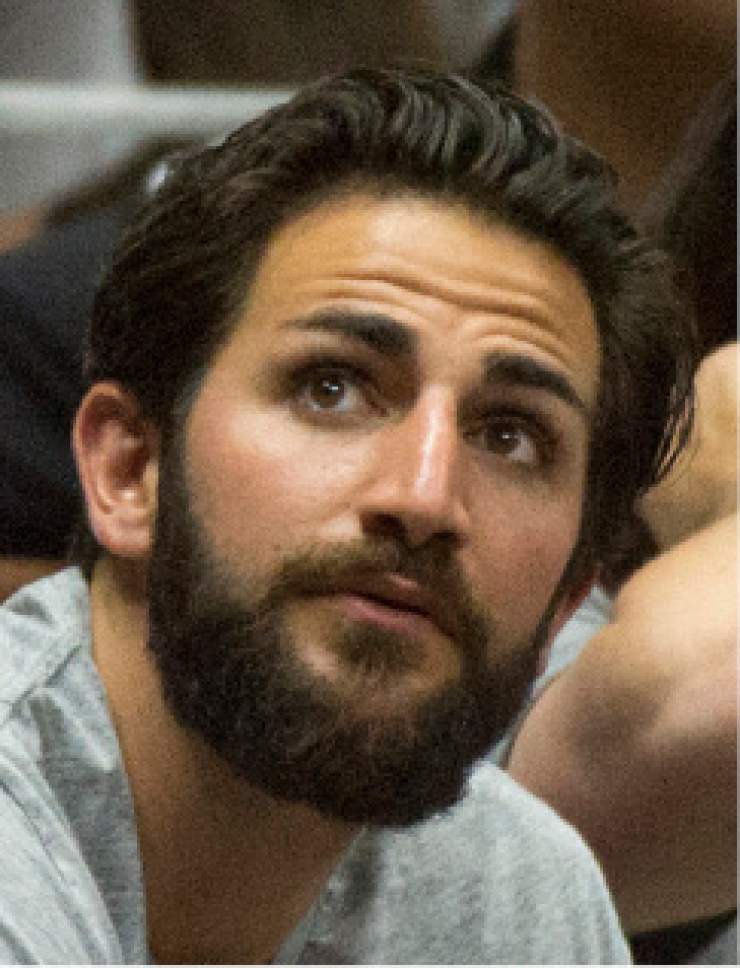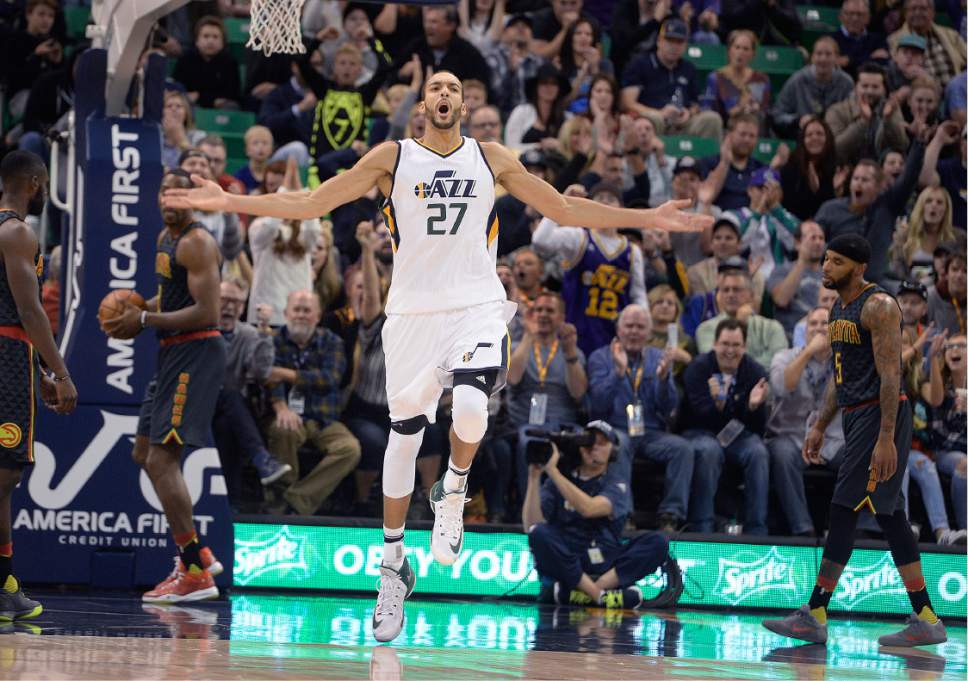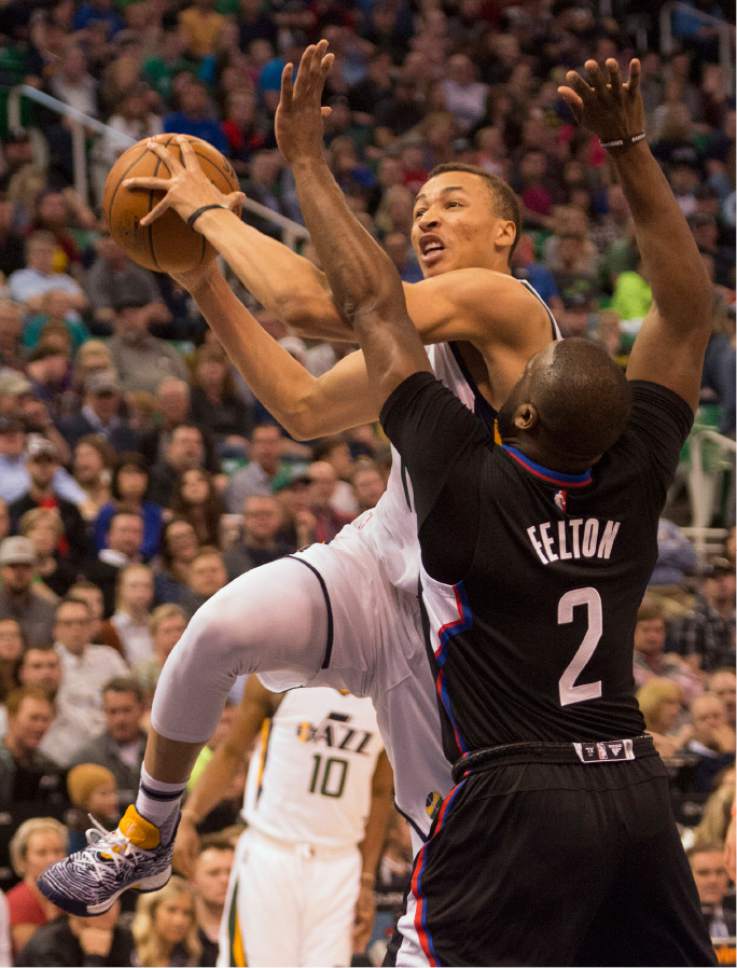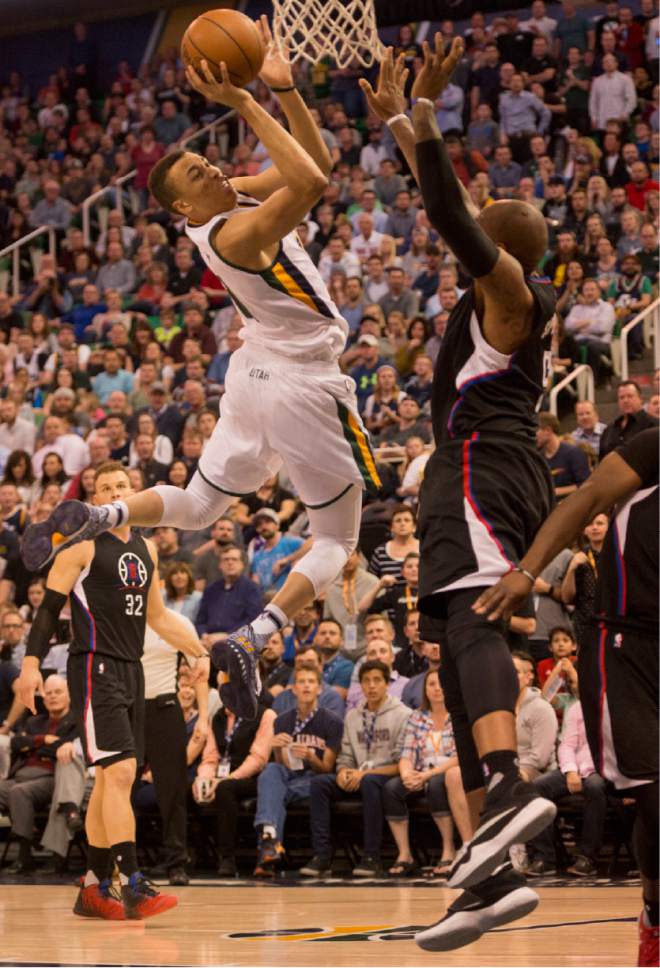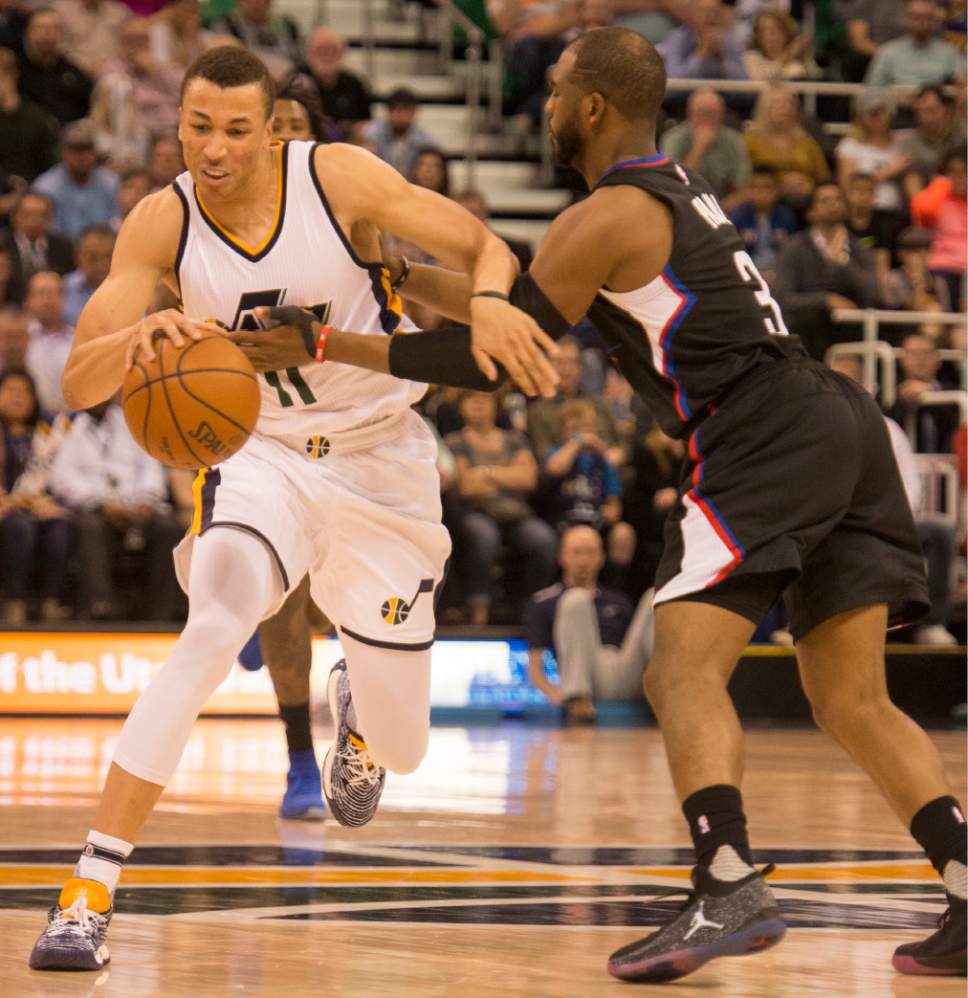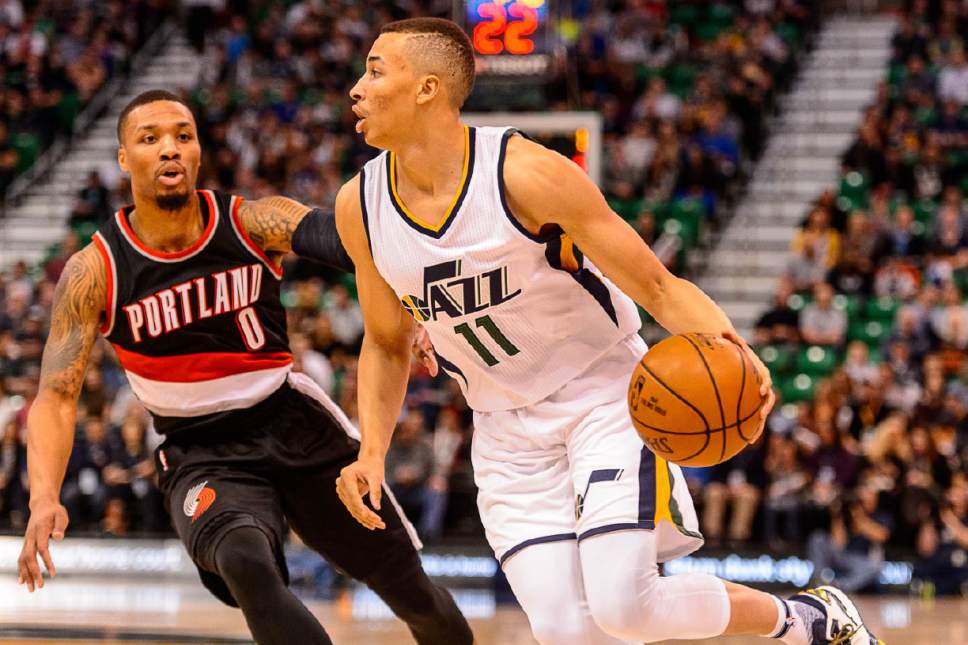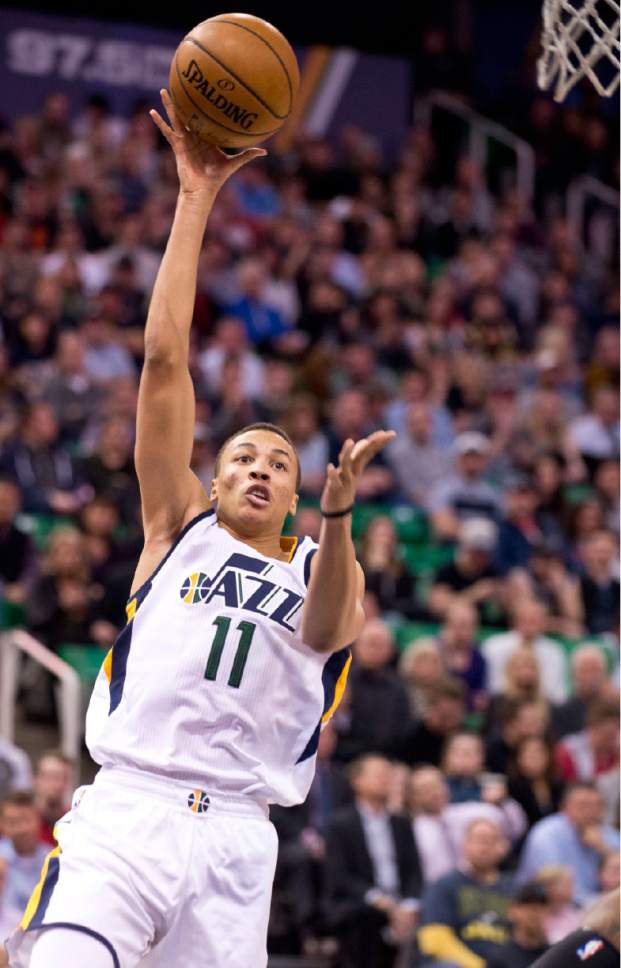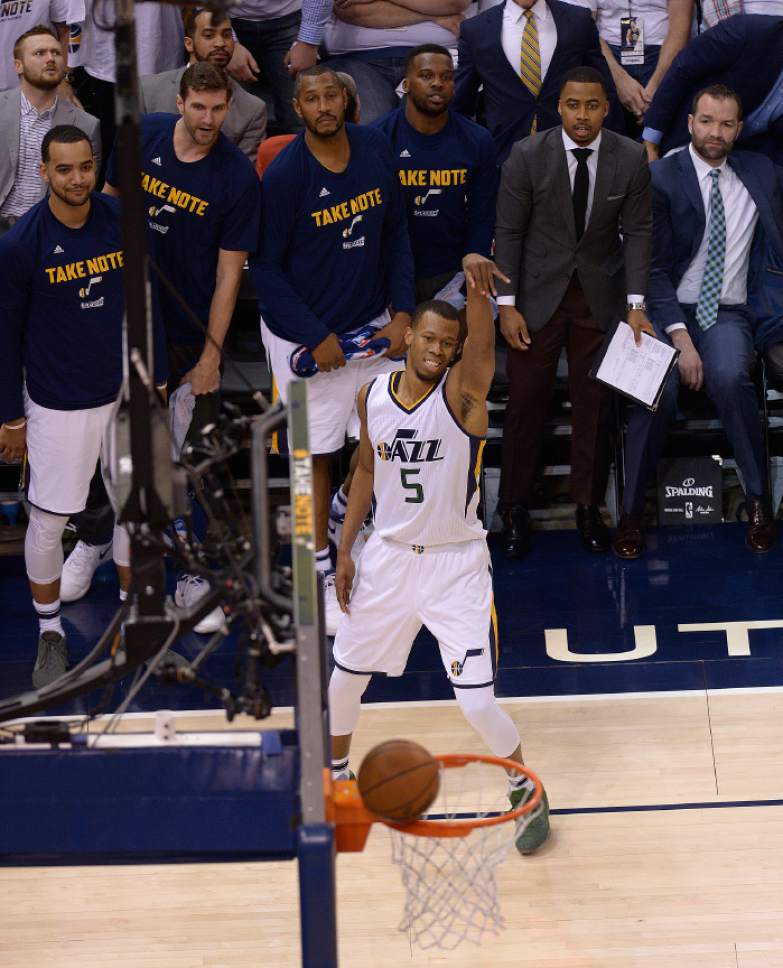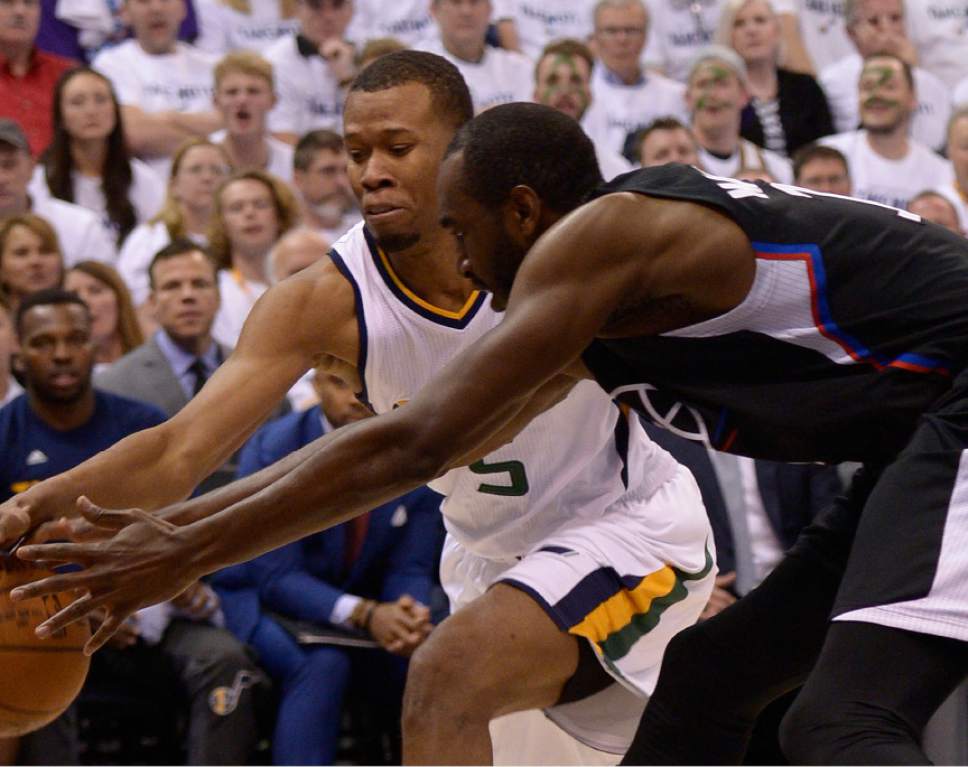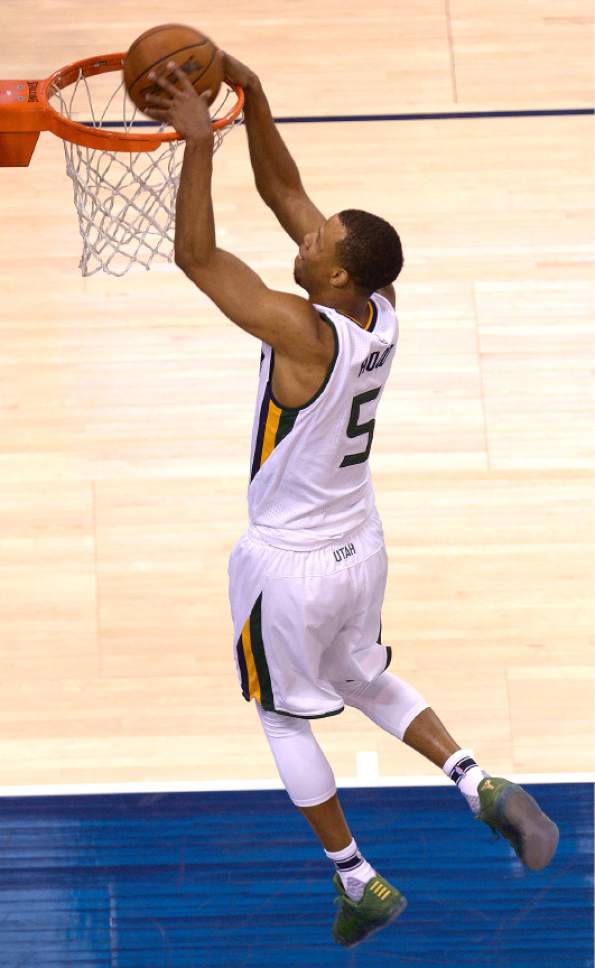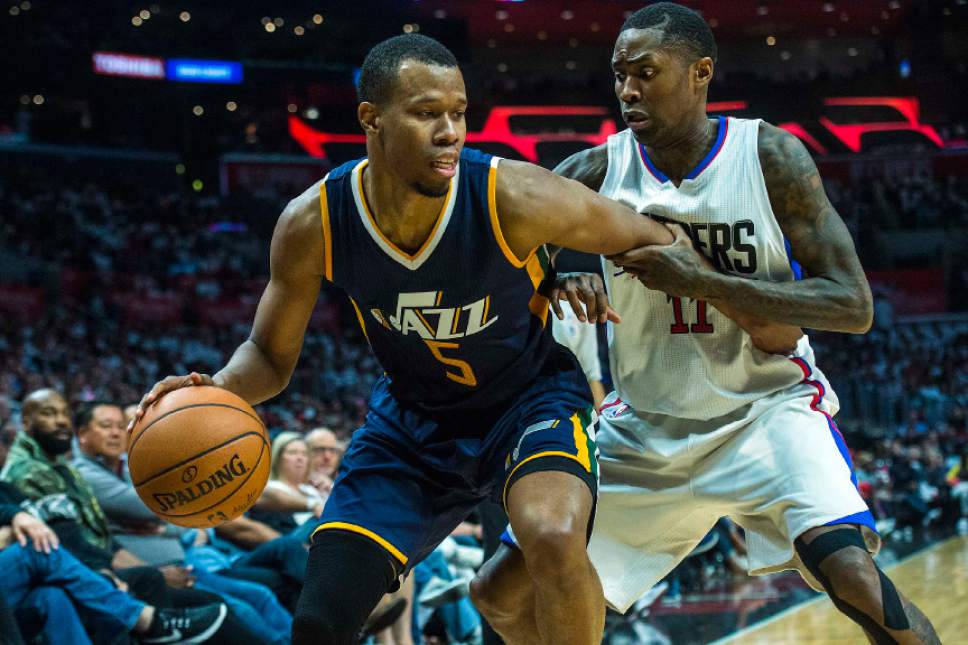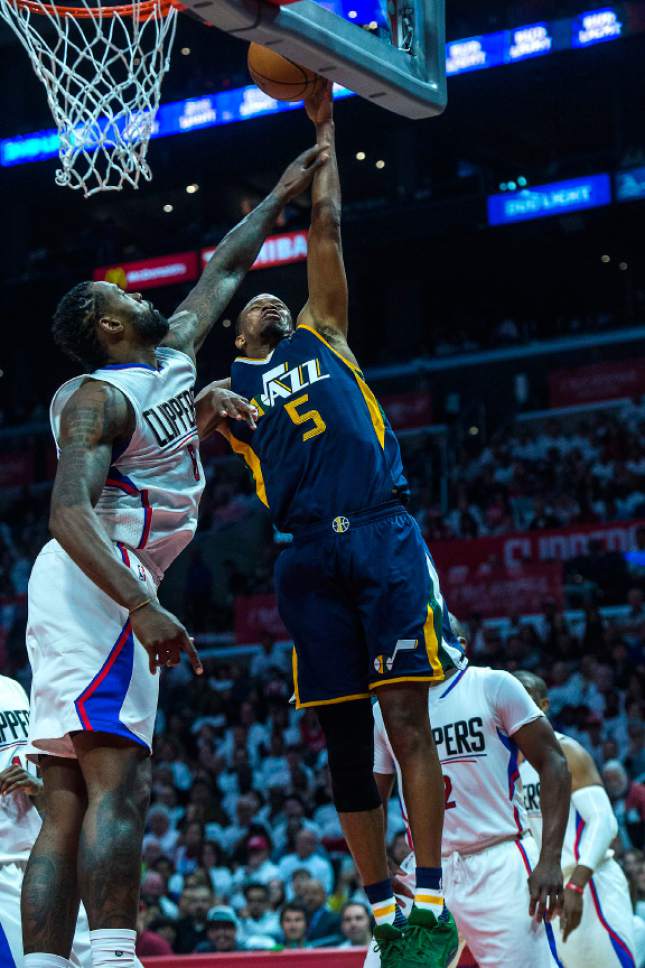This is an archived article that was published on sltrib.com in 2017, and information in the article may be outdated. It is provided only for personal research purposes and may not be reprinted.
Las Vegas • A little more than a decade ago when Steve Nash left the Dallas Mavericks for the Phoenix Suns in free agency, Mavs owner Mark Cuban didn't panic and tear it all down. He instead continued to build around the talents of all-NBA forward Dirk Nowitizki.
Dallas went on to win an NBA title in 2011.
The circumstance is different with the Utah Jazz, and general manager Dennis Lindsey isn't going to predict a championship. But he drew a broad parallel when building the Jazz after Gordon Hayward bolted for Boston. The Mavericks tailored their roster around Nowitzki's talents, stocking the team with shooters and a rim-running big man in Tyson Chandler.
"We feel like we can build defensively around Rudy Gobert," Lindsey told The Tribune. "We look at him, and he's a top 10 player and unique defender. So we wanted to build a team around his talents."
Welcome to the new-look Utah Jazz. They won't be the Golden State Warriors or Houston Rockets, two teams that can score in bunches. But the Jazz project as a potentially elite defensive team, one with a bevy of defensive playmakers surrounding Gobert in the middle.
Lindsey knew replacing Hayward's 22 points a game figured to be impossible. Hayward's decision to make the jump to the Boston Celtics came too late in the free agency period for Lindsey to jump on the market to sign a scorer.
So he did the next best thing. He signed Thabo Sefolosha, Jonas Jerebko and Epke Udoh. The three are veterans, plus defenders and unselfish players who will fit seamlessly into coach Quin Snyder's ball-moving offense.
The signings make the Jazz a deep team. They are a team hoping to qualify for the playoffs in the ultra-competitve Western Conference. But they will have to be functional offensively, and that's where the questions will have to be answered.
"We have the chance to be very good defensively," Utah rookie guard Donovan Mitchell said. "With Rudy in the middle, that allows the guards on the perimeter to pressure their men. If we get beat, we have the big guy to erase our mistakes and challenge in the paint. It's a nice luxury to have."
The Jazz took a few days to develop a strategy in the wake of Hayward leaving for the Celtics.
But Lindsey met with his staff and delivered a strong message: The Jazz weren't going to feel sorry for themselves. They weren't going take a step back. The organization describes the last two weeks as a pivot more than a restructure.
"We just felt like we had too much talent to tear it down to the foundation," Lindsey said. "The main thing with Quin and Rudy is what do we stand for? We feel like we have a great player in Rudy, and we want to showcase his ability."
There are significant questions and concerns going forward. Will the Jazz be able to stay healthy after a year when they were one of the most injured teams in the league? Will Rodney Hood and Dante Exum be able to take the leap the franchise thinks possible? How will Mitchell handle being thrown into the rotation? Can Derrick Favors and Alec Burks stay healthy and return to previous form?
On the surface, the Jazz still have a playoff team. They won't be projected in the top four in the Western Conference like they would have if Hayward re-signed. But Utah's roster should be able to win more than its share of games, even in the Western Conference.
"People are going to be surprised by how we do this year," Gobert said. "We just have to keep getting better."
Hood and Exum will be key. Hood will be a No. 1 perimeter option for the first time in his career, something he's been craving. He'll get all the touches he needs to increase his production. Utah's offense will run through him in important situations, and he'll be counted on to provide scoring.
He'll also be a marked man defensively. Hayward always drew the opposition's best defender, which allowed Hood and Joe Ingles to feast on lesser perimeter defenders. Hood won't have that luxury. He knows that, and he's been in Salt Lake City for most of the offseason to work on his game and try to get stronger.
"We think Rodney has the potential to be in that 18 points per game range," Lindsey said. "We had some perimeter talent become available to us. But we have to let Ricky [Rubio] have the ball, and we have to let Rodney become the offensive wing we know he can be. We didn't want to bring in anyone who could get in the way of Donovan, Dante and Rodney. We want them to develop."
Lindsey and the Jazz are fully vested in the younger players. But they've supplemented them with veterans who can help on and off the floor. To replace Hayward's fourth-quarter scoring, the Jazz will turn to Hood and Joe Johnson, who was fantastic in the role last season. The Jazz have hopes for Favors' return to health and previous form.
The Jazz don't have the margin for error that existed last year. In other words, Utah probably won't win 51 games and make the Western Conference semifinals if it continues to be the most injured team in the NBA. Lindsey and his organization need good fortune.
But the Jazz also did a good job forging an identity. Assuming good health, it's a team that still should be playing once the postseason rolls around. The question will be how they adapt offensively while losing their best offensive option from a year ago.
"We're excited," Lindsey said. "We want the season to start so we can start competing and see where our level is."
Twitter: @tribjazz —
Utah Jazz
Key losses
Gordon Hayward • Signed with Boston in free agency
George Hill • Signed with Sacramento in free agency
Boris Diaw • Waived by the Jazz
Shelvin Mack • Signed with Orlando in free agency
Trey Lyles • Traded on draft night
Key additions
Ricky Rubio • Acquired via trade with Minesota
Donovan Mitchell • First-round draft pick
Thabo Sefolosha • Signed as free agent
Epke Udoh • Signed as free agent
Jonas Jerebko • Signed as free agent
Retained
Joe Ingles • Re-signed to a four-year $52 million deal


